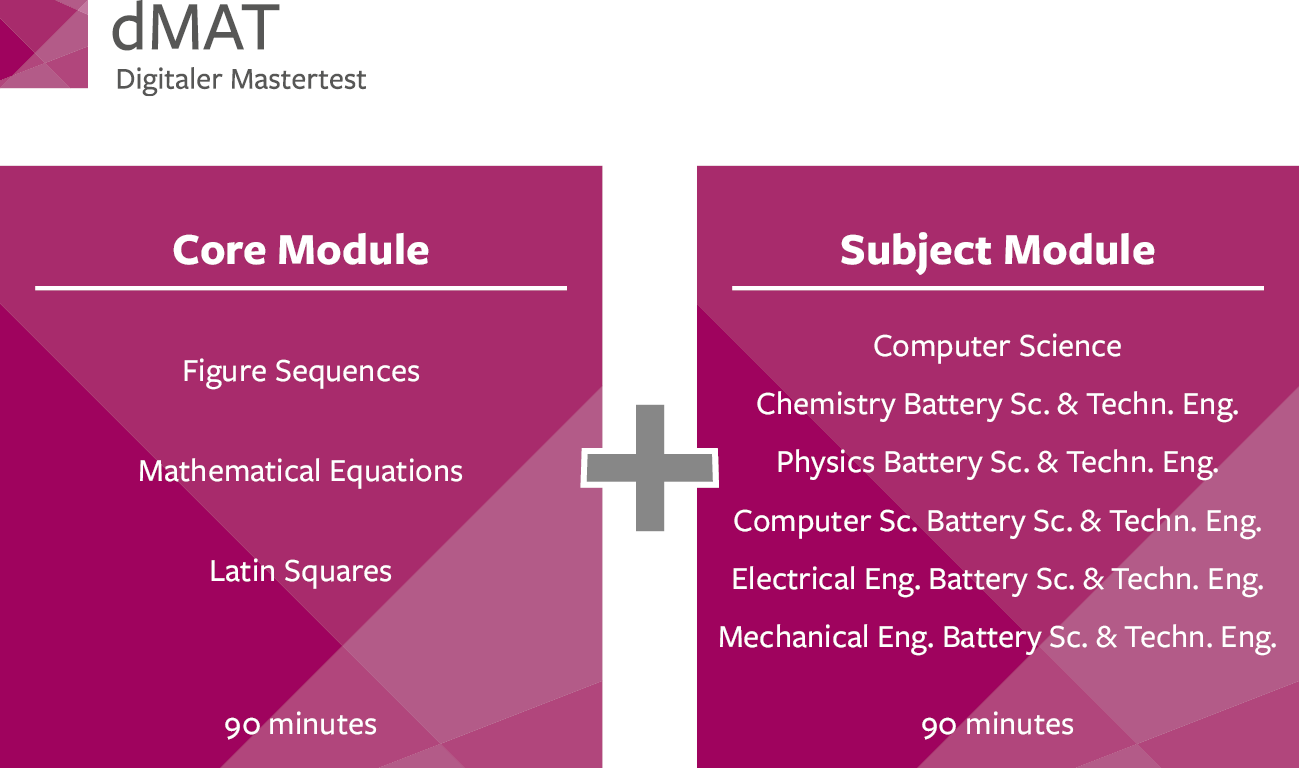dMAT – apply for your Master’s programme
– Computer Science for the MSc Computer Science at Paderborn University
– Chemistry for the MSc Battery Science and Technology in Engineering at RWTH Aachen University
– Physics for the MSc Battery Science and Technology in Engineering at RWTH Aachen University
– Computer Science for the MSc Battery Science and Technology in Engineering at RWTH Aachen University
– Electrical Engineering for the MSc Battery Science and Technology in Engineering at RWTH Aachen University
– Mechanical Engineering for the MSc Battery Science and Technology in Engineering at RWTH Aachen University
The subject module measures concrete subject-specific knowledge and application skills, which are the basis for successful studies in Computer Science at the Master level at German universities. All tasks are in single-choice answer format, the test language for the current subject modules is English.
The dMAT is carried out digitally in test centers appointed by the Gesellschaft für Akademische Studienvorbereitung und Testentwicklung (g.a.s.t.).
